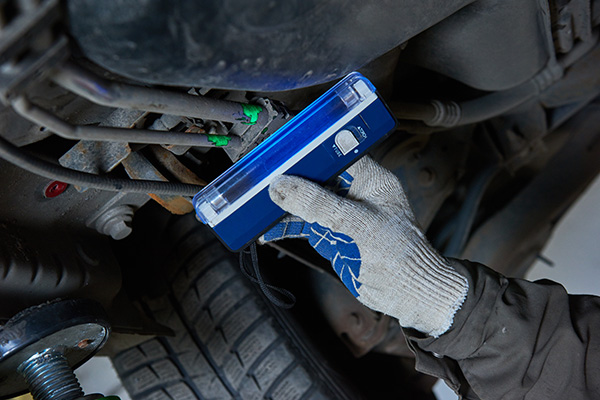
Ever turned on your car's air conditioning on a sweltering day only to feel warm air blowing from the vents? It's a frustrating situation that many drivers face, often caused by leaks in the air conditioning (A/C) system. But what leads to these leaks? Understanding the common causes can help you prevent issues and keep your car cool during the hottest months.
The Role of Refrigerant in Car A/C Systems
Your car's A/C system relies on refrigerant to cool the air that flows into the cabin. This refrigerant circulates through various components, including the compressor, condenser, evaporator, and numerous hoses and seals. Over time, any part of this intricate system can develop leaks, resulting in a decline in cooling performance.
Wear and Tear of Rubber Components
One of the primary culprits behind A/C system leaks is the gradual wear and tear of rubber components. Hoses and seals made from rubber can degrade over time due to exposure to extreme temperatures, vibration, and constant use. As the rubber ages, it can crack and lose its flexibility, leading to leaks. Regular inspection and maintenance of these parts are crucial to preventing leaks and maintaining optimal A/C performance.
Corrosion and Damage to Metal Parts
Corrosion is another significant factor that contributes to A/C system leaks. Metal components, such as the condenser and evaporator, are particularly susceptible to rust and corrosion, especially in regions with high humidity or areas that use road salt in winter. Corrosion weakens these parts, causing tiny holes through which refrigerant can escape. Physical damage from road debris or minor collisions can puncture or crack metal components, leading to leaks.
Vibrations and Physical Stress
The constant vibrations and physical stress that a car endures while driving can also take a toll on the A/C system. Over time, these vibrations can loosen connections, fittings, and seals, creating opportunities for leaks to develop. Regular maintenance checks can help identify and address these issues before they lead to more significant problems.
Manufacturing Defects
In some cases, A/C system leaks can be traced back to manufacturing defects. Poorly designed or improperly installed components can fail prematurely, causing refrigerant leaks. If your vehicle is relatively new and experiencing A/C problems, it might be worth checking if there are any recalls or known issues related to the A/C system.
Improper Maintenance and Repairs
Neglecting regular maintenance can also lead to A/C system leaks. Failing to service the system at recommended intervals can result in the accumulation of dirt and debris, which can clog components and cause wear. Improper repairs or the use of low-quality replacement parts can compromise the integrity of the system, leading to leaks.
Detecting and Addressing A/C System Leaks
Detecting an A/C system leak early is essential to prevent further damage and costly repairs. If you notice that your A/C isn't cooling as effectively as it used to, or if you hear unusual noises when the system is running, it might be time to inspect for leaks.
A professional technician can perform a leak detection test using specialized equipment to pinpoint the exact location of the leak. Once identified, the affected parts can be repaired or replaced to restore the system's functionality. In some cases, adding a leak sealant to the refrigerant can temporarily fix minor leaks, but this should not be considered a long-term solution.
Preventive Measures to Avoid A/C System Leaks
While some factors contributing to A/C system leaks are beyond your control, there are steps you can take to minimize the risk. Regular maintenance is key – have your A/C system inspected and serviced according to the manufacturer's recommendations. This includes checking and replacing worn-out hoses, seals, and other components before they fail.
Keeping your car clean, particularly the areas around the condenser and radiator, can also help prevent corrosion and physical damage. If you live in an area with harsh winters, make sure to rinse off road salt and other corrosive substances from your vehicle regularly.
Feeling the heat? Don't let a leaking A/C system ruin your summer drives. Visit Extreme Auto Repair for a thorough inspection and professional maintenance to keep your car cool.